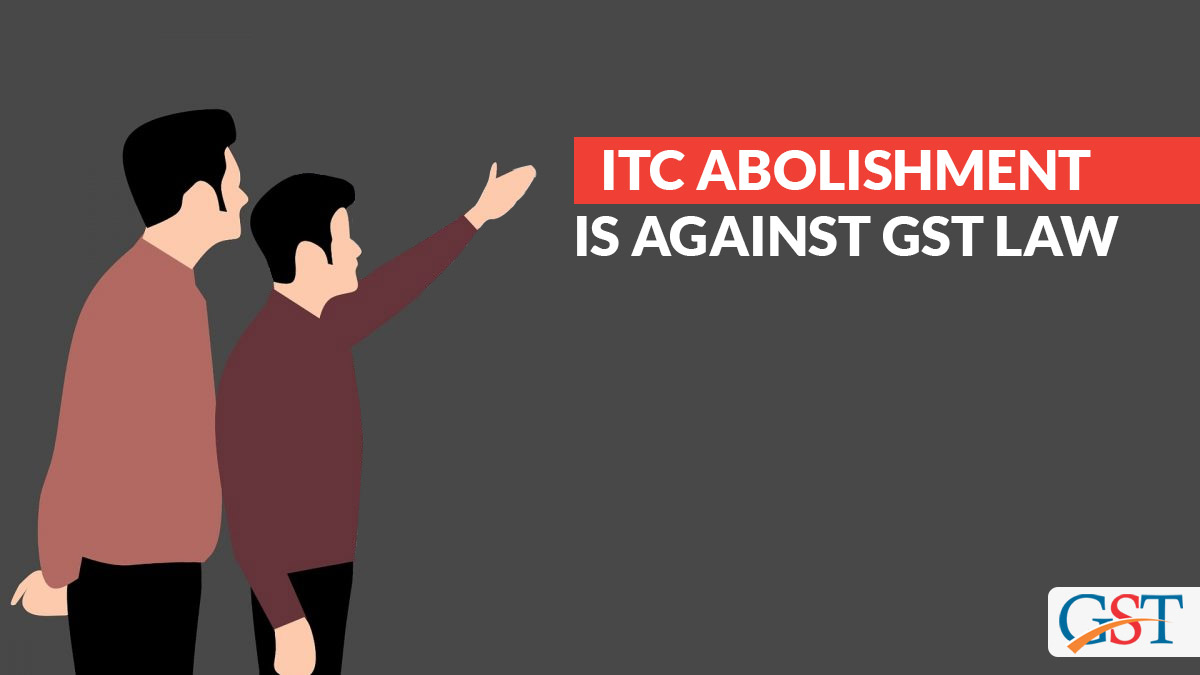Through a recent announcement, the real estate sector witnessed huge leverage in the GST charged on its various segments. The Tax for under-construction housing and affordable housing projects has been cut down by the Government and is brought to 5 percent and 1 percent respectively.
The reduction in Tax in this area would have been a good attempt but alongside as the Government has abolished the ITC from the loop, which is being trolled by the Experts. As the experts believe that the removal of the ITC from the whole scenario in the context of the real estate sector, goes against the motive of the GST department whose very purpose of GST implementation in the Country was to dig out the black money and completely check tax evasion.
Read Also: Does GST System Need to Be More Technically Strict Against Tax Evasions?
Thus, this step of ITC abolishment from the loop would create a gap in tracking the money trail and hence would create a hiding space for the tax thieves.
In effect of the rate cut to a lower of 5 per cent and below, recently the sectors which have been exempted from ITC after restaurants are the Under-construction properties and affordable housing. Learning about ITC, it is the credit which is available for the payment of taxes on the inputs used across the value chain. This makes the complete production transparent and efficient and it also facilitates any audit trails to extract tax evasion.
“It does go against the very spirit of GST. Restricting input is not a good idea for any sector, and particularly for real estate, which needs to be formalised more,” Pratik Jain, partner and leader for indirect tax at PwC India, told news agency IANS.
Anuj Puri, chairman of ANAROCK Property Consultants while talking to IANS said “After the rate cut and removal of ITC, developers may have to take a hit in their profit-margins, inducing them to resort to cash payments while purchasing inputs or raw materials. This will increase the scope of black money generation in the market.”
As per Mr Jain, the Government took the step of lowering the GST on under-construction and affordable housing projects and has also removed ITC from the overall loop as it was being continuously noticed by the Government that the availed tax credit was not being passed on to the customers by the real estate developers hence becoming a one way profiteering procedure.
“It’s more in the direction that it (government) wanted to give relief to the common man. But it is obviously not a good idea from a policy standpoint. Adding restricting input credit may incentivise cash or black money transactions in the sector” – he said.
It is the similar condition just like the restaurants, where it seemed as if the restaurants were not passing the profit which they availed in the name of ITC to the customers in the form of lower prices.
Thus, the ITC criterion has been removed from that sector also.
Mahesh Jaising, partner, Deloitte India, said: “The government’s standpoint was that in the first couple of months, even though all the credit was being granted to restaurants, the base price of a menu was not declining. From the optics of customer, 18 per cent GST also felt high.”
It was in November 2017 that the GST council had cut GST rates for both air-conditioned and non-air-conditioned restaurants from 18 and 12 per cent, respectively to 5 per cent.
Abhishek Jain, the partner at EY, said that the removal of ITC is not going to make any difference. He again added, “In these cases, it’s a lesser evil because buyers in these segments, in any case, do not get the credit.”
As per Mr Jain, the decision might turn to the positive or negative side as doing so might increase demand but might not lead to the return of cash transactions. The analysts and sector players have a view on this topic that the GST’s suggestion to get a procurement cap of 80 per cent fixed for the purchase of input from registered vendors only, would have been a success in unveiling the hidden cash transactions.
Recommended: Input Tax Credit Guide Under GST: Calculation with Examples
It looks like the GST council is trying to fill the Gap created in the system by the removal of the ITC and cutting of the rates from the real estate segment by making it mandatory for the developers to purchase 80 percent of the inputs from GST-registered suppliers.
“I do hope after a couple of years when GST settles down with more awareness in all sectors of industry and consumers, there could be a revisit to some of the composition schemes, as it involves credit denial,” Mr Jaising from Deloitte India said.
